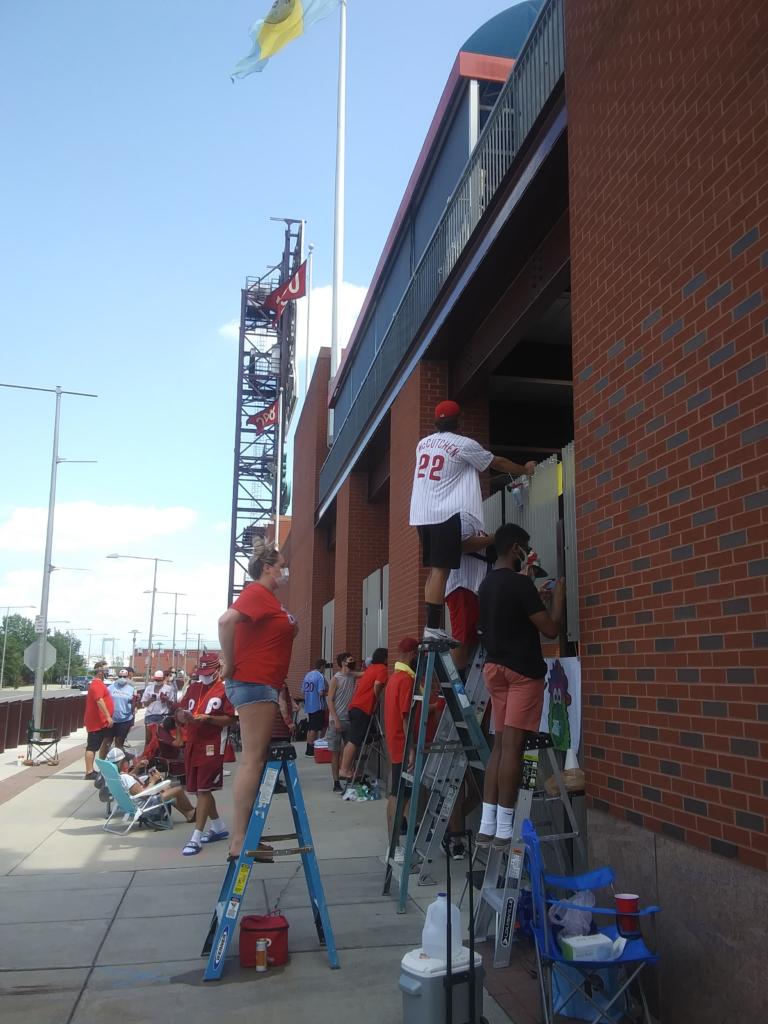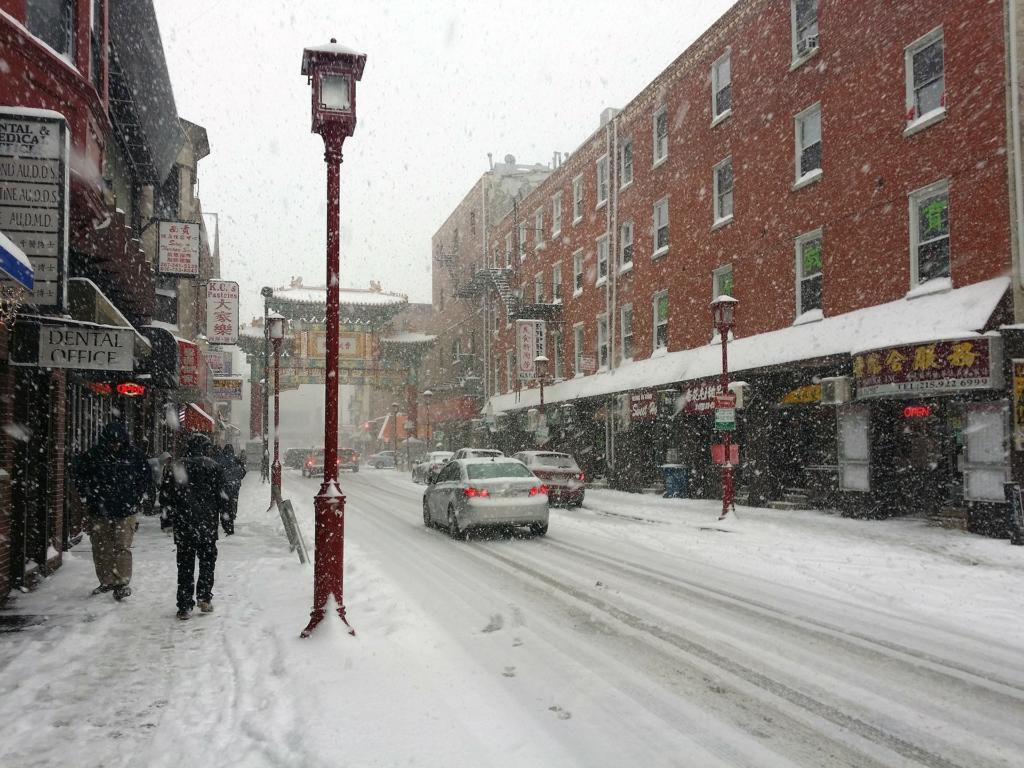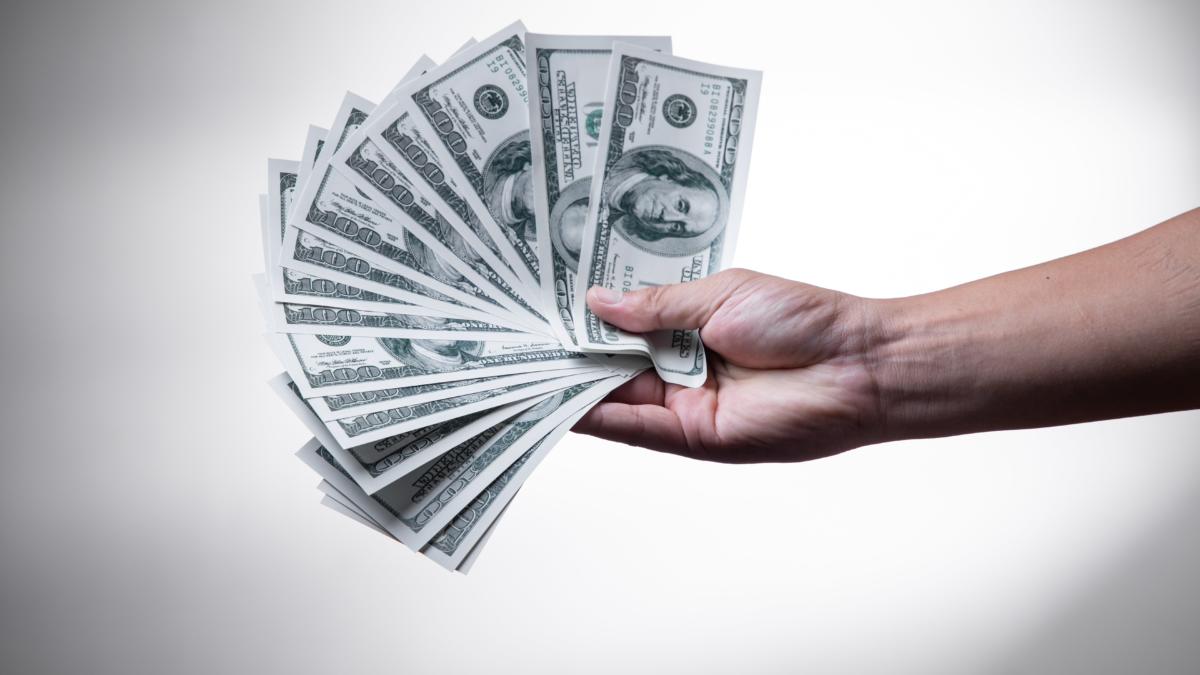The Shout Out
President Biden’s stimulus package continued to wind its way through Congress this week. If approved, it could provide checks of up to $1,400 for many Americans.
Your turn:
What would you do with your $1,400? Do you even think this stimulus package is needed or the right thing to do?
Send your thoughts to voices@philadelphiaweekly.com.
Shout back
PW asked last week if you enjoyed all of the recent snowfall in the city or if you were ready for spring-like weather to arrive. Here are a couple of your responses.

Looking forward to the Phillies
Despite there still being snow on the ground as I type this, the Phillies open spring training in less than a week. As more vaccines roll out and the infection rate trends downward, Philadelphia needs to look at allowing fans into Citizens Bank Park this year. I don’t think there should be a packed ballpark until the virus is totally under control; however, I believe the city should permit the Phillies to allow a safe number of fans inside CBP.
My fear is that Mayor Kenney is going to handle this situation much the way he handled the vaccination rollout in Philadelphia. I don’t live in the city, but from what I see and read about the mayor, he seems out of touch. Eventually, we need to start getting back to our everyday lives. The ballpark provides a lot of jobs for people in the area, including the food vendors, parking, and ticket ushers. As long as people wear masks, wash their hands, and use common sense, we should be able to sit at the ballpark and take in a baseball game this summer.
As much as I enjoyed spending time last year with the Phandemic Krew, I really hope to be able to enjoy a ball game or two this year in the ballpark. I think Zach Eflin is going to have a breakout year. Thank you.
Jason Love | Somerdale, NJ

Happy with the snow
I love it when it snows. That’s what winter is supposed to be. I only wish that we would get more.
Irene Gleba | Philadelphia
Article misses the mark on Board of Ethics
Although it was not the main point of his article (“Where’s the watchdog?” Feb. 18), A. Benjamin Mannes claims that the Philadelphia Board of Ethics does not have independent authority to investigate and act on public integrity matters. That claim is false. The Ethics Board is independent of the administration and has the authority under the city’s Home Rule Charter to administer and enforce the city’s Public Integrity Laws, which include the Ethics Code, Campaign Finance and Lobbying Laws and political activity restrictions in the Charter. The Board has subpoena power and a dual enforcement track, meaning it can either enforce the City’s Public Integrity Laws by Administrative Adjudication or by going to the Philadelphia Court of Common Pleas. As an independent Charter agency, the Board has jurisdiction over all of city government.
Mr. Mannes also suggests that the Ethics Board’s fines are limited only to campaign finance and that the fines are “normally negligible.” This claim is not accurate. Apart from the fact that any City agency’s fines – including the Ethics Board’s and any future independent inspector general that Mr. Mannes argues for – are limited to $2,000 per violation by state law, the Ethics Board has leveled significant fines for campaign finance, ethics, lobbying and political activity violations when appropriate.
Perhaps more important than the amount of any fine, the Ethics Board has held elected and top government officials and others accountable for violations of the City’s Public Integrity Laws since it was established 14 years ago. Before the Ethics Board was established, no City agency, department or office had that authority. All 173 of the Ethics Board’s settlement agreements, in which the Board has collectively assessed $541,625 in penalties and required $181,089 in disgorgements to the city, are available to the public on the Board’s website.
In the future, I’d be happy to speak with anyone before an article is published about the jurisdiction and actions of the Ethics Board to ensure a more accurate description.
J. Shane Creamer, Jr. is the executive director of the Philadelphia Board of Ethics.
Wolf’s budget hits Philly while it’s still down
It’s no secret that Philadelphia has been hit hard by the coronavirus and lockdowns. It was one of the first counties to lock down and one of the last counties to begin taking steps toward reopening through Gov. Wolf’s phased plan. That means local businesses and workers in the state’s most populated municipality have endured the most time without making money.
And just when many were starting to think the worst was behind us, Wolf gave his annual budget address recently. Based on his proposals, the city’s residents and businesses might be hit again.
As it stands, the governor’s budget proposal includes a plan to increase the personal income tax (PIT) from the current rate of 3.07 percent to 4.49 percent. He includes increases in income “allowances,” which he says will result in a tax reduction for the “working class.” In reality, according to U.S. Census data, the median household would see a tax increase across most major household categories.
For Philadelphians, a state income tax hike is an even bigger worry than it is for most other Pennsylvanians. Philadelphia is the fifth highest-taxed urban area in the country, barely lower than places like New York City and San Francisco. Apart from the local sales tax, Wolf’s proposal would increase the maximum income tax for Philadelphians from under 7 percent to over 8 percent.
During his address, Wolf said, “the question isn’t whether taxes are unpleasant or necessary. They’re both.” While most people would accept that some taxes are necessary, that isn’t the same as justifying increasing them, especially considering how hard this tax increase will hit Philadelphia’s already struggling small businesses in addition to workers.
According to an NFIB December survey, one-quarter of small businesses nationally will have to close if current economic conditions don’t improve over the next six months. Last August, more than 1,000 Philly businesses had already closed, according to Yelp data. Wolf’s proposed tax hike would disproportionately affect businesses and households that are already struggling.
Despite the name, the PIT isn’t only personal. It’s also the way that 85 percent of the approximately 1 million businesses in the state are taxed. This is because businesses such as Limited Liability Companies, Partnerships, and S Corporations file under the PIT rather than the much higher Corporate Net Income Tax (CNIT).
This simple fact goes against Wolf’s claim that he recognizes how important businesses are to our communities’ economic revival. Even though he proposed that the CNIT be reduced by 25 percent in his address, an increase in the PIT will hit many more businesses. This doesn’t make sense if you want to improve the business climate of the state.
Lawmakers in the General Assembly should reject Wolf’s bad ideas and instead implement policies that would actually improve the business climate and make life easier for workers.
One such reform is permitting all businesses – not just corporations – the ability to carry forward and deduct operating losses. Additionally, Pennsylvania has the 11th highest number of business regulations in the country, with almost 163,000 individual rules. And that doesn’t include COVID-specific regulations. These rules alone result in huge time costs to businesses, especially small ones.
Reducing the myriad of rules and eliminating harmful or needless regulations would not only make it easier for businesses to operate but also make it easier to ensure compliance with the regulations that do matter. Thankfully, there are already many bills introduced that address both these areas and would represent a vast improvement over the status quo.
Wolf was right that the state should make things easier for Pennsylvanians, especially those struggling; however, his tax plan doesn’t do that. Raising taxes on individuals and businesses is not the way to improve job opportunities and economic growth. For Philadelphians who have been hit the hardest during the COVID pandemic, the governor’s budget address wasn’t the message of relief and support they needed to hear.
We can build back better as Philadelphians and Pennsylvanians, but that involves removing barriers and creating opportunity, not adding to existing hardship.
Tirzah Duren is a Policy Analyst for the Commonwealth Foundation, Pennsylvania’s free market think tank. @tzduren. This article was originally published at Broad + Liberty. Follow them on Twitter @BroadAndLiberty.





